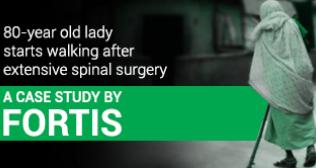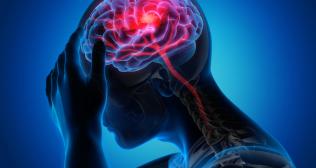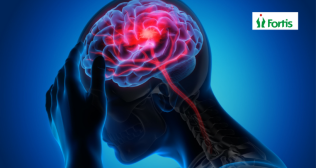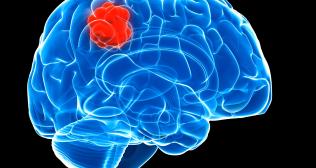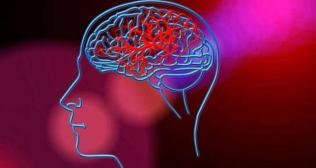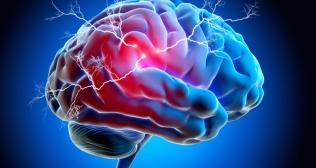
A Guide to Recognizing Neurological and Spinal Emergencies
Introduction
Neurological and spinal emergencies include a spectrum of conditions that require urgent medical attention due to their risk for significant morbidity and mortality. From strokes to traumatic injuries and infections, these emergencies can have devastating effects on the central and peripheral nervous systems, making timely intervention crucial. Vigilance, preparedness, and quick intervention are vital in managing these critical conditions.
Neurosurgeons and spine surgeons play a pivotal role in ensuring timely care as they are equipped to act quickly and precisely, collaborating with a multidisciplinary team of neurologists, radiologists, anesthesiologists, and ICU specialists.
Types of Neurological and Spinal Emergencies
These emergencies are broadly categorized into those involving the brain and those involving the spinal cord.
- Brain Emergencies: Brain emergencies include ischemic strokes, hemorrhagic strokes, traumatic brain injuries (TBIs), seizures, brain tumors, and infections, such as meningitis or encephalitis. Symptoms commonly include sudden weakness or numbness, severe headaches, altered mental status, difficulty speaking or understanding speech, and loss of consciousness.
- Spinal Cord Emergencies: Spinal emergencies primarily result from traumatic injuries, such as spinal cord compression due to fractures or dislocations, spinal cord contusions or penetrating injuries, acute disc herniations, spinal infections, and spinal cord infarction. Symptoms include severe back or neck pain, weakness or paralysis in the extremities, loss of bowel or bladder control, and sensory problems.
How do These Emergencies Affect the Body?
The effects vary depending on the condition and the severity of the injury or dysfunction. They include:
- Motor Dysfunction: This includes weakness, paralysis, and loss of coordination in various body parts.
- Sensory Changes: Damage to the nervous system can cause alterations in sensory perception, such as numbness, tingling, or loss of sensation.
- Cognitive Impairment: Some neurological emergencies, such as stroke or traumatic brain injury, can cause difficulties with memory, attention, language, and executive functions.
- Speech and Language Complications: Neurological conditions affecting the brain can lead to speech and language difficulties.
- Bowel and Bladder Dysfunction: Spinal cord injuries and other spinal emergencies can disrupt the normal functioning of the autonomic nervous system, leading to bowel and bladder dysfunction.
- Respiratory Problems: Spinal cord injuries involving the cervical or thoracic segments can cause breathing difficulties or respiratory failure.
- Autonomic Dysregulation: Damage to the autonomic nervous system can result in dysregulation of vital functions, such as blood pressure, heart rate, and temperature control.
- Disability: For some patients, neurological and spinal emergencies result in permanent disability and long-term impairments that require life-long medical care and rehabilitation.
- Psychological Impact: Neurological and spinal emergencies can affect the patients psychologically due to chronic pain, disability, and loss of independence.
- Mortality: In severe cases, neurological and spinal emergencies can be life-threatening.
Why is Timely Intervention So Crucial?
Timely treatment and management of the conditions are crucial to reduce the effects on the body.
They include:
- Prevention of Further Damage: In strokes, every minute without proper blood flow to the brain can result in the death of millions of brain cells. In spinal cord injuries, secondary damage can occur due to inflammation, swelling, and ischemia.
- Treatment Effectiveness: Some interventions are most effective when initiated within a specific time window beyond which the chances of successful outcomes and recovery are significantly reduced.
- Preservation of Neurological Function: Timely intervention aims to preserve neurological function and prevent permanent disability.
- Prevention of Complications: Prompt intervention can help prevent secondary complications associated with neurological and spinal emergencies, such as seizures, brain damage, or death.
- Reduction of Healthcare Burden: Timely intervention can help minimize the burden on healthcare systems by reducing the need for prolonged hospitalization, intensive care, and rehabilitation services.
Strategies That Help Save Lives
- Emergency care: Prompt action is essential to prevent further damage and optimize outcomes. This includes calling for emergency medical assistance, keeping airways open, checking for breathing and circulation, and keeping the patient in a stable position to prevent exacerbation of injuries.
- Recognition and Assessment: Timely recognition and assessment of neurological and spinal emergencies are crucial for initiating appropriate interventions and preventing further deterioration. This includes a comprehensive neurological examination of mental status, cranial nerve function, motor strength, sensation, reflexes, and coordination. This can be done through standardized assessment tools and imaging studies, such as computed tomography (CT) or magnetic resonance imaging (MRI).
- Stroke Management: For acute ischemic strokes, intravenous thrombolytic therapy with tissue plasminogen activator (tPA) is recommended to restore blood flow to the affected brain tissue within the first few hours of symptom onset. Eligible patients might also benefit from endovascular interventions such as mechanical thrombectomy. Hemorrhagic strokes require supportive care to control blood pressure and intracranial pressure, along with surgical interventions to evacuate hematomas or repair ruptured vessels.
- Traumatic Brain Injury (TBI) Management: Initial management of TBI involves ensuring adequate oxygenation, maintaining cerebral perfusion pressure, and preventing secondary brain injury. This may include neuroprotective measures, such as maintaining a patent airway, controlling blood pressure, and monitoring intracranial pressure. Surgical intervention may be necessary to evacuate hematomas or decompress intracranial pressure.
- Spinal Cord Injury Management: Spinal cord injuries require immediate immobilization and stabilization to prevent further damage. Surgical intervention may be necessary to decompress the spinal cord, stabilize spinal fractures, or remove compressive lesions. High-dose steroids are sometimes administered to reduce inflammation and minimize secondary injury.
Neurological and spinal cord emergencies represent a diverse range of conditions that require prompt recognition, accurate diagnosis, and timely intervention. Healthcare providers must be familiar with the clinical presentations, diagnostic approaches, and management strategies for these emergencies to optimize patient outcomes. The complexities of neurological and spinal emergencies can be effectively navigated to improve patient care and reduce morbidity and mortality through a multidisciplinary approach involving emergency medical services, neurology, neurosurgery, and critical care teams.
Popular Searches :
Hospitals: Cancer Hospital in Delhi | Best Heart Hospital in Delhi | Hospital in Amritsar | Hospital in Ludhiana | Hospitals in Mohali | Hospital in Faridabad | Hospitals in Gurgaon | Best Hospital in Jaipur | Hospitals in Greater Noida | Hospitals in Noida | Best Kidney Hospital in Kolkata | Best Hospital in Kolkata | Hospitals in Rajajinagar Bangalore | Hospitals in Richmond Road Bangalore | Hospitals in Nagarbhavi Bangalore | Hospital in Kalyan West | Hospitals in Mulund | Best Hospital in India | Gastroenterologist in Jaipur | Cardiology Hospital in India
Doctors: Dr. Rana Patir | Dr. Rajesh Benny | Dr. Rahul Bhargava | Dr. Jayant Arora | Dr. Anoop Misra | Dr. Manu Tiwari | Dr. Praveer Agarwal | Dr. Arup Ratan Dutta | Dr. Meenakshi Ahuja | Dr. Anoop Jhurani | Dr. Shivaji Basu | Dr. Subhash Jangid | Dr. Atul Mathur | Dr. Gurinder Bedi | Dr. Monika Wadhawan | Dr. Debasis Datta | Dr. Shrinivas Narayan | Dr. Praveen Gupta | Dr. Nitin Jha | Dr. Raghu Nagaraj | Dr. Ashok Seth | Dr. Sandeep Vaishya | Dr. Atul Mishra | Dr. Z S Meharwal | Dr. Ajay Bhalla | Dr. Atul Kumar Mittal | Dr. Arvind Kumar Khurana | Dr. Narayan Hulse | Dr. Samir Parikh | Dr. Amit Javed | Dr. Narayan Banerjee | Dr. Bimlesh Dhar Pandey | Dr. Arghya Chattopadhyay | Dr. G.R. Vijay Kumar | Dr Ashok Gupta | Dr. Gourdas Choudhuri | Dr. Sushrut Singh | Dr. N.C. Krishnamani | Dr. Atampreet Singh | Dr. Vivek Jawali | Dr. Sanjeev Gulati | Dr. Amite Pankaj Aggarwal | Dr. Ajay Kaul | Dr. Sunita Varma | Dr. Manoj Kumar Goel | Dr. R Muralidharan | Dr. Sushmita Roychowdhury | Dr. T.S. MAHANT | Dr. UDIPTA RAY | Dr. Aparna Jaswal | Dr. Ravul Jindal | Dr. Savyasachi Saxena | Dr. Ajay Kumar Kriplani | Dr. Nitesh Rohatgi | Dr. Anupam Jindal |
Specialities: Heart Lung Transplant | Orthopedic | Cardiology Interventional | Obstetrics & Gynaecology | Onco Radiation | Neurosurgery |







